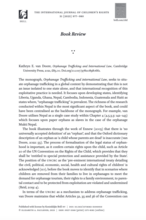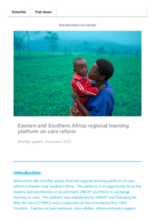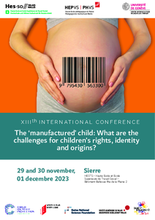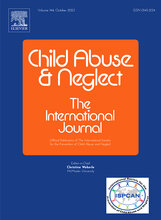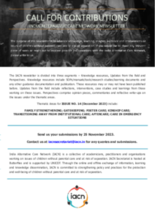Displaying 401 - 410 of 4424
This book review is written by Elizabeth Faulkner of author Kate Kathryn E.
This is the monthly update of the Eastern and Southern Africa Regional Learning Platform published in December 2023.
The process of changing the model of service provided by an organization from one that is residential care service focused to a non-residentia
Family strengthening is comprehensive strengths-based approaches, supports and services to families at risk of separation or those receiving
This webinar introduced new global inter-agency guidance on kinship care. During the webinar, panelists shared key lessons learnt on how to support kinship care, drawing particularly on examples of promising practices from South Africa, Zimbabwe, Liberia, and Brazil.
Four-time Olympic gold medal winner Mo Farah, who was born in Somalia and trafficked to Britain as a child, joined the UN migration agency on Tuesday as its first global goodwill ambassador.
This international symposium aims to provide an overview of the various practices and legislation that regulate the field of assisted reproductive technology (ART), ranging from the most restrictive to the most liberal, alongside related issues.
The symposium will bring together persons with lived experience of statelessness, child rights advocates and civil society organizations, policy experts, UN agencies and members from the UN Committee on the Rights of the Child to delve into key aspects of the child’s right to identity and education, with discussions from the field focused on challenges, good practices and solutions for the future.
Limited research has investigated the impact of COVID-19 on Out-of-Home Care (OOHC) and child protective services (CPS) worldwide or explored how CPS overcame the challenges of helping children in OOHC. This review aims to address this gap in the research to unveil the ‘positive legacy’ left by CPS in their work with children in OOHC during COVID-19.
India Alternative Care Network (IACN) is calling for contributions to the 14th edition of IACN Quarterly. IACN believes that the exchange of learning, challenges and information, evidence, interventions, and insights wi

